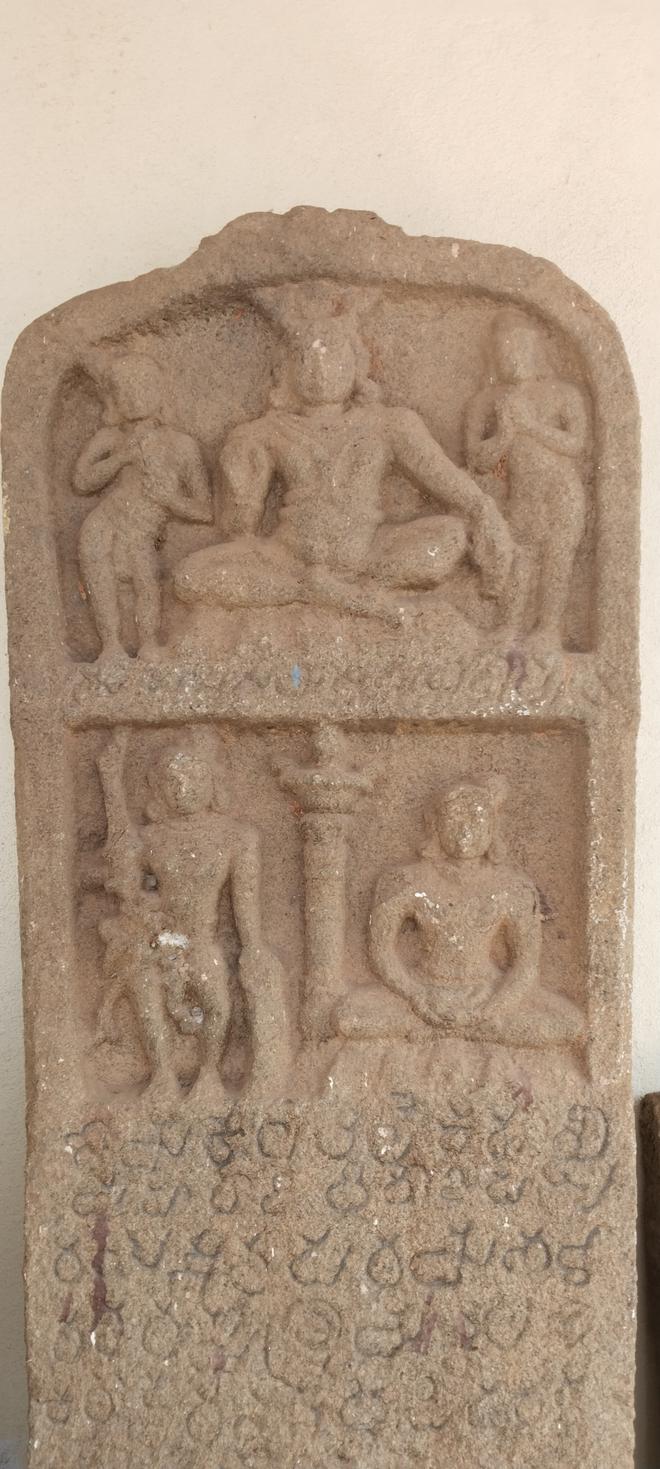Eminent archaeologist T. Murugeshi on Wednesday, October 18, said he along with others, has discovered a rare inscription connected to the Alupa dynasty of the region during a recent archaeological exploration at Someshwara near Mangaluru.
In a statement here, Mr. Murugeshi said the inscription was the first record of the Alupas that announced the death of a king and also mentioned terms related to the Siri cult, such as Siri, Dalya and Chattara (Chatra). He further said the Someshwara inscription is very significant in the study of Tuluva history and culture.
Origins of the Soma cult
The Soma cult was founded by one Soma Sharma of Gujarat in the 11th century AD and it spread across the country. The Someshwara temple at Someshwara was built during the time of Kulashekara Alupendra in honour of Soma and adorned with Nava Durgas. Independent Navadurga sculptures in sitting posture are found in the temple, he said.
Mr. Murugeshi said one Kesava is responsible for the erection of the edifice in honour of Kulashekara Alupendra. The Keerthi sthamba or pillar found in the inscription is a replica of the original pillar found in the premises of a church in Kulashekara, a suburb of Mangaluru.

The inscription has two panels on the top, and in between the two panels the first line is engraved. The rest of the inscription written below the panels is in the Kannada script and the language of 12th century characters announcing the death of Alupendra I.
The human figures shown in the inscription represent Kulashekara Alupendra himself. In the first figure, he is shown standing in Tribhanga (tri-bent posture). He holds a sword in his right hand while the left hand rests on a gurani (shield). To the left of this panel, divided by a pillar, the King is again shown in a sitting posture on a mound resting both his palms on the centre of his legs in dhyana mudra.
Who was Kulashekara Alupendra?
Kulashekara Alupendra I was a famous ruler of the Alupas of South Canara. He was responsible for the establishment of new city called Kulashekara in Mangaluru. He also laid down strict rules and regulations for temple administration, which are still followed in all temples in this region. He was the first ruler to give royal patronage to Tulu language and culture, ruling from both the capitals, Mangaluru and Barkuru.
Alupendra I ruled Tulunadu from 1156-1215 A.D., as known from his other records. Though the present inscription is undated, it is datable to 12th century on the basis of paleography, Mr. Murugeshi said.






